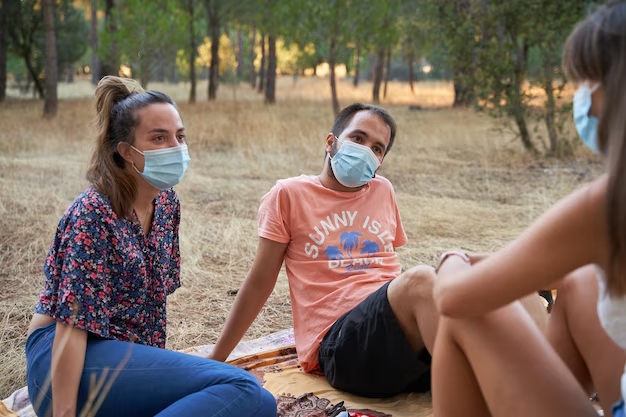Unlocking Rural Health Access: Understanding the Delta Health Care Services Grants
In recent years, addressing the complexities of healthcare access in rural communities has taken on critical importance. For many regions, especially in the Delta areas, healthcare services can be sparse or challenging to access. Herein lies the significance of the Delta Health Care Services (DHCS) Grants, which serve as a vital support mechanism to enhance healthcare infrastructure and delivery in these underserved regions. This article delves into the DHCS Grants, exploring their impact, application process, and broader implications for rural healthcare.
🌿 The Importance of Rural Healthcare Access
Rural communities, by their nature, often grapple with geographic and economic barriers that can limit access to essential healthcare services. Here's why improving healthcare in these areas is vital:
- Geographic Barriers: Distances to the nearest hospitals or clinics can be vast, complicating timely access to medical attention.
- Economic Challenges: Rural areas tend to have higher rates of poverty, reducing affordability for health services.
- Shortage of Providers: Fewer healthcare professionals choose to practice in remote areas, leading to a shortage of available care.
By acknowledging these challenges, initiatives such as the DHCS Grants can address disparities and provide a lifeline to these communities.
💡 Exploring Delta Health Care Services Grants
What Are DHCS Grants?
The Delta Health Care Services Grants are federal funds designed to improve healthcare delivery in the eight-state Delta region of the United States. These grants aim to bolster health infrastructure, foster collaboration among providers, and ultimately enhance access to care for residents.
Goals of the DHCS Grants
- Improving Healthcare Infrastructure: Funding is directed towards upgrading facilities and equipment to meet modern standards.
- Fostering Collaboration: Encourages partnerships across healthcare providers to streamline service delivery and enhance patient care.
- Strengthening Workforce: Supports training programs to attract and retain healthcare professionals in rural areas.
- Enhancing Access to Care: Removes barriers to obtaining necessary medical services.
🚀 The Application Process: Navigating the Path to Funding
Eligibility Criteria
To qualify for the DHCS Grants, organizations must primarily serve rural Delta communities. Eligible entities typically include:
- Nonprofit organizations
- Community-based institutions
- Faith-based organizations
- Tribal governments
Application Steps
- Prepare a Comprehensive Proposal: Detail the healthcare needs of your community and outline a clear plan for addressing these gaps.
- Collaborate with Local Stakeholders: Engage with other healthcare providers and community leaders to build a robust application.
- Demonstrate Impact: Clearly articulate the anticipated outcomes of the project, including improvements in healthcare access and quality.
- Submit Before Deadline: Ensure all documents are completed and submitted by the specified deadline to be considered for funding.
Common Challenges
Applicants may encounter challenges such as meeting stringent requirements or lack of familiarity with grant-writing processes. Collaboration with experienced partners can often mitigate these hurdles.
📈 Measuring the Impact: DHCS Grants in Action
Positive Outcomes
Many who have accessed DHCS Grants report significant benefits, such as:
- Increased Access: More clinics and healthcare providers available closer to residents.
- Enhanced Services: A broader range of healthcare services available in rural clinics.
- Community Engagement: Greater involvement from the community in health initiatives, leading to improved public health outcomes.
Success Stories
Several projects funded by DHCS Grants have led to meaningful changes, such as expanded telemedicine capabilities, establishment of mobile health clinics, and increased mental health services availability.
🔍 The Broader Context: Rural Health Assistance Programs
Other Federal Initiatives
Beyond the DHCS Grants, multiple federal programs aim to support rural healthcare, including:
- Community Facilities Direct Loan & Grant Program: Provides funding for healthcare facility construction and improvement.
- The Rural Health Care Program: Offers telecommunications and broadband services to improve medical resources in rural areas.
Role of Technology in Rural Health
Technology plays a pivotal role in bridging healthcare gaps. Innovative solutions like telemedicine expand access to specialists without the need for travel, while electronic health records enhance continuity of care.
📋 Quick Guide: Key Takeaways
Here's a quick summary of the essential points discussed:
- 📉 Rural Health Challenges: Geographic and economic barriers limit access.
- 🎯 DHCS Grants: Federal funds aim to improve infrastructure and healthcare delivery.
- 🔗 Application Process: Requires collaboration and a detailed proposal.
- 📊 Measurable Impact: Grants lead to increased access and enhanced healthcare services.
- 🏥 Broader Support: Other federal initiatives complement DHCS Grants.
🌟 Empowering Change: Conclusion
Improving healthcare access in rural communities like the Delta region is a journey that requires collaboration, innovation, and sustained commitment. Delta Health Care Services Grants are a crucial part of reducing healthcare disparities, providing necessary support for infrastructure enhancement and service delivery.
By leveraging these grants and other support programs, communities can build a healthier future for all their residents, ensuring that rural healthcare is accessible, sustainable, and meeting the evolving needs of today and tomorrow.

Related Topics
- A Comprehensive Guide To Crime Victim Assistance
- A Comprehensive Guide To Economic Infrastructure Development
- A Comprehensive Guide To Low-Income Housing Repair Loans And Grants
- A Comprehensive Guide To The Emergency Solutions Grants Program
- A Comprehensive Guide To The Senior Companion Program
- A Comprehensive Guide To The State Childrens Health Insurance Program
- A Comprehensive Guide To The TANF Program For Needy Families
- Additional Child Tax Credit
- Adoption Assistance
- Adult Basic Education Grants
